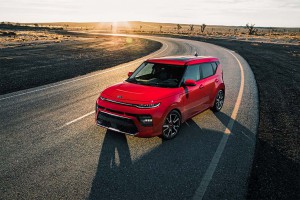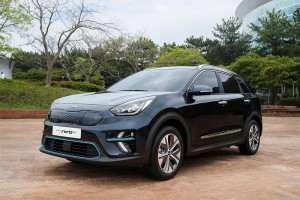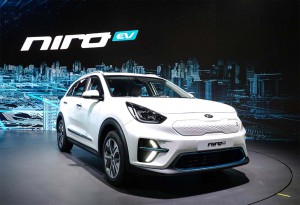
A new version of the Kia Soul EV will yield more than double the range of the original — once it arrives.
Automakers around the world are preparing to rapidly ramp up production of electrified vehicles, including Kia, but they are running into some major stumbling blocks, including a global shortage of batteries.
That’s a big problem for the South Korean carmaker which was readying a new, long-range version of its popular Soul crossover, with 11 pure battery-electric vehicles due in its line-up by 2025. Kia is performing triage to deal with the battery shortage, delaying some products while limiting distribution of others to specific markets.
“My sense is that we could sell two or three times what we currently sell” in the U.S. if the company could get all the batteries it needs, Steve Kosowski, manager of long-range planning and strategy at Kia Motors America, told battery-car magazine Elektrek.
(Audi puts brakes on e-tron production due to battery issues.)
Kia is by no means the only company facing problems sourcing enough batteries. Audi last week temporarily idled production of the e-tron at a plant in Europe because of a pack shortage. And Jaguar has had to cope with supply issues for its i-Pace, as well.
Global EV production is “being constrained more by lack of (battery) manufacturing capacity than anything else,” Paul Anderson, co-director of the Birmingham Centre for Strategic Elements and Critical Materials, told Britain’s The Times earlier this month.
There’s a big push to address the problem. All told, there currently are plans in place to have more than 91 large-scale battery plants in operation within the next several years, about twice as many as currently are online, with even more expected to follow.
But manufacturers will have to cope with shortages for at least the near to midterm, in many cases.
Kia’s “Plan S,” which called for an array of new EVs is now in disarray, according to Kosowski and others. Among the products feeling the impact, the EV planner said, is the next-generation Soul EV, which will boost range to a more competitive 243 miles per charge. For now, its market launch is being pushed back to 2021, if not beyond.
(Tesla in talks to switch to different battery for China Model 3 sedans.)
“We know there’s demand for the Soul EV,” Kosowski told Elektrek. “But if we’re only going to get 3,000 batteries allocated to North America for 2019, and we want to maximize our business, then we’d like to put all our chips on Niro EV.”
The Niro was Kia’s first model offered in all-electric form, as well as with a PHEV option, in the States.

More and more EVs, like the Kia Niro, are arriving each month. The result is a shortage of batteries causing Kia and other makers to examine their plans.
One of the challenges for Kia’s North American operations is that the company is focusing its electrification strategy on Europe. That’s no surprise – nor is it unique. Not only are battery-cars gaining more traction in that market but European regulators have enacted extremely stringent carbon dioxide mandates. Manufacturers that miss their targets could face millions, even billions, of euros in penalties.
That’s not to say Kia doesn’t see the U.S. as a potentially big market for battery vehicles. According to Kosowski, its longer-term strategy still holds. Like other key markets, BEVs are expected to make up 20% of Kia sales by 2026. That would translate into more than 100,000 of them annually if the brand’s sales were simply to hold steady at 2019 levels. As one of the fastest growing marques in the U.S., however, Kia would likely have to sell substantially more EVs by then, however.
And Kosowski indicated that once the battery supply problem is addressed the Korean manufacturer would likely offer in the U.S. “more than three models. It’s possible that we could have up to five or six EVs.”
The EV battery shortage could prove more difficult to solve than simply adding manufacturing capacity, however. As TheDetroitBureau.com reported earlier this week, there may be shortages of key raw materials, including lithium, cobalt and even copper, in store.

